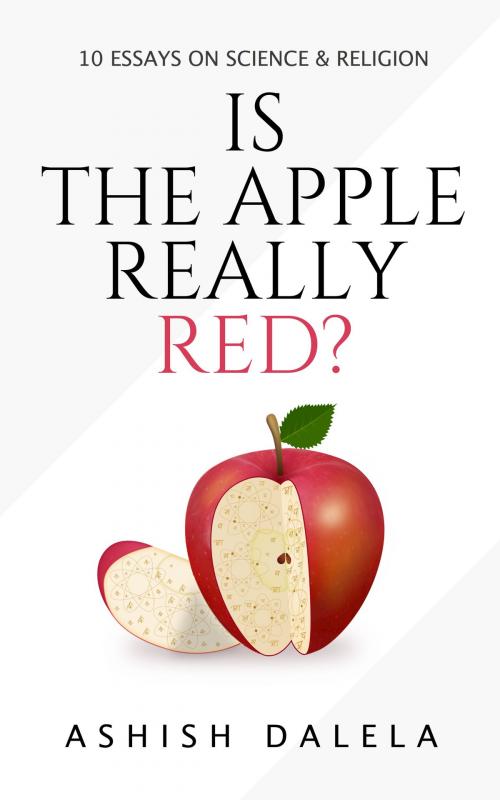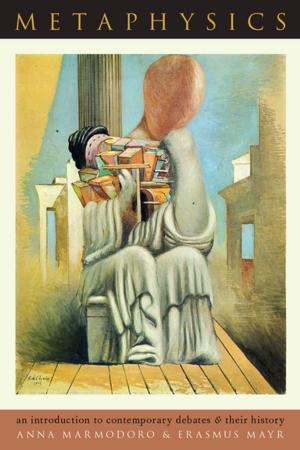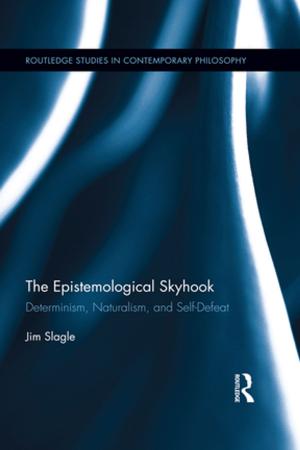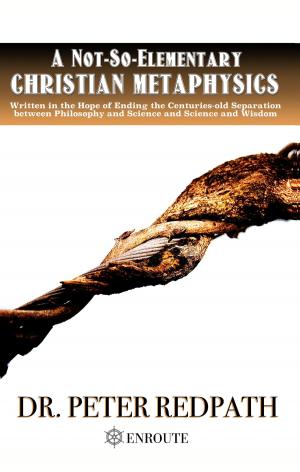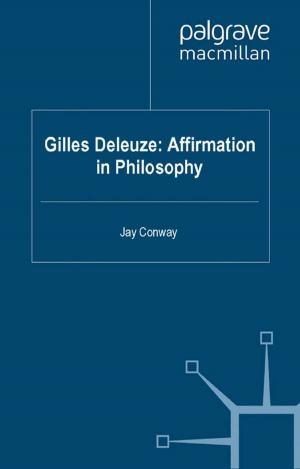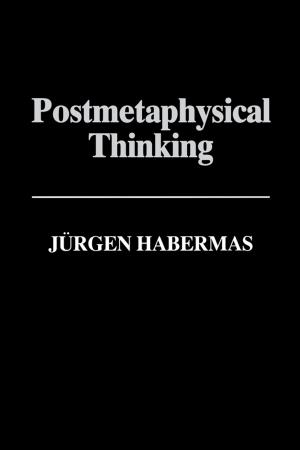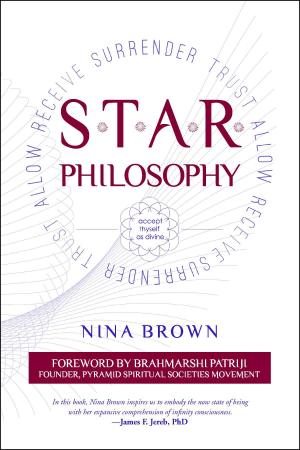Is the Apple Really Red?
10 Essays on Science and Religion
Nonfiction, Religion & Spirituality, Eastern Religions, General Eastern Religions, Hinduism, Philosophy, Metaphysics| Author: | Ashish Dalela | ISBN: | 9788193052389 |
| Publisher: | Shabda Press | Publication: | November 16, 2014 |
| Imprint: | Language: | English |
| Author: | Ashish Dalela |
| ISBN: | 9788193052389 |
| Publisher: | Shabda Press |
| Publication: | November 16, 2014 |
| Imprint: | |
| Language: | English |
The clash of ideologies between science and religion - this book argues - is based on an incorrect understanding of matter, disconnected from consciousness, and an incorrect notion of God, disconnected from matter, space and time. The ideas of soul, morality, God and afterlife can also be scientific, but in a new science that studies meanings instead of objects.
Informed by Vedic philosophy, this book is structured into 10 short essays:
1.Is the Apple Really Red?—provides an overview of the Vedic view of matter, which is described as symbols of meaning rather than meaningless things. The relation between this notion of matter and problems of realism and empiricism in science are discussed.
2.Is Free Will an Illusion?—argues against the materialist interpretation of Libet’s experiment, which claims free will is an illusion. The author discusses the Vedic view of free will and shows how it is consistent with Libet’s own conclusion about his experiments.
3.Evolution-Mind over Matter—critiques the molecular theory of evolution, showing that in an ecosystem no single living being can individually mutate into another species; these mutations would be reversed by the ecosystem. The essay argues that evolution needs to be explained by the collective changes to the ecosystem as a whole.
4.Intelligent Design and Vedic Philosophy—discusses how ID theorists trace complexity in nature to a design by God, but this does not help in the formulation of scientific theories. What if there are deeper properties in matter arising from the existence of the mind and design is a property of the mind, not an act of God?
5.Impersonalism, Voidism and Science—discusses how impersonal and voidistic notions about religion view form or information in nature as an accident rather than a fundamental feature of reality. The essay discusses how the idea of form leads to a new science, but that science can only be based on a personalistic notion about religion.
6.Why God’s Existence Is a Scientific Question—accepts Richard Dawkins’s argument for the non-existence of God but shows that its conclusion (that God does not exist) is flawed because God’s existence implies a different view of matter than prevalent in current science. The essay discusses problems of incompleteness in science and connects them to the new view of matter, which can not only change science but also indicate the existence of God.
7.Space-Time and God—connects the Vedic notion of God to a new view about space-time. The essay shows how God is simultaneously detached and related to the material world and our experience of it. The Vedas describe the universe as created by four forms of God and the essay connects them to the creation of a semantic universe.
8.Are the Vedas Polytheistic?—attempts to debunk the common misconception that Vedic religion is polytheistic. In fact, various forms of God in Vedic philosophy are parts of a single form and are created from the single form just as various pots can be created from the idea of potness.
9.Science and Ritualism—discusses the Vedic science of rituals and how it is based on a semantic rather than physical notion of matter. The problems of religious imagery and symbolism are connected to the need for treating space and time as forms rather than formlessness.
10.Do Miracles Violate Scientific Laws?—discusses the classic conflict between choice and determinism in nature. What if the laws of nature are laws of choice, and one can be free of these laws through proper action? God is already free of the laws and living beings can be free as well. God therefore does not violate laws through miracles, although He is free from the consequences of His choices.
The clash of ideologies between science and religion - this book argues - is based on an incorrect understanding of matter, disconnected from consciousness, and an incorrect notion of God, disconnected from matter, space and time. The ideas of soul, morality, God and afterlife can also be scientific, but in a new science that studies meanings instead of objects.
Informed by Vedic philosophy, this book is structured into 10 short essays:
1.Is the Apple Really Red?—provides an overview of the Vedic view of matter, which is described as symbols of meaning rather than meaningless things. The relation between this notion of matter and problems of realism and empiricism in science are discussed.
2.Is Free Will an Illusion?—argues against the materialist interpretation of Libet’s experiment, which claims free will is an illusion. The author discusses the Vedic view of free will and shows how it is consistent with Libet’s own conclusion about his experiments.
3.Evolution-Mind over Matter—critiques the molecular theory of evolution, showing that in an ecosystem no single living being can individually mutate into another species; these mutations would be reversed by the ecosystem. The essay argues that evolution needs to be explained by the collective changes to the ecosystem as a whole.
4.Intelligent Design and Vedic Philosophy—discusses how ID theorists trace complexity in nature to a design by God, but this does not help in the formulation of scientific theories. What if there are deeper properties in matter arising from the existence of the mind and design is a property of the mind, not an act of God?
5.Impersonalism, Voidism and Science—discusses how impersonal and voidistic notions about religion view form or information in nature as an accident rather than a fundamental feature of reality. The essay discusses how the idea of form leads to a new science, but that science can only be based on a personalistic notion about religion.
6.Why God’s Existence Is a Scientific Question—accepts Richard Dawkins’s argument for the non-existence of God but shows that its conclusion (that God does not exist) is flawed because God’s existence implies a different view of matter than prevalent in current science. The essay discusses problems of incompleteness in science and connects them to the new view of matter, which can not only change science but also indicate the existence of God.
7.Space-Time and God—connects the Vedic notion of God to a new view about space-time. The essay shows how God is simultaneously detached and related to the material world and our experience of it. The Vedas describe the universe as created by four forms of God and the essay connects them to the creation of a semantic universe.
8.Are the Vedas Polytheistic?—attempts to debunk the common misconception that Vedic religion is polytheistic. In fact, various forms of God in Vedic philosophy are parts of a single form and are created from the single form just as various pots can be created from the idea of potness.
9.Science and Ritualism—discusses the Vedic science of rituals and how it is based on a semantic rather than physical notion of matter. The problems of religious imagery and symbolism are connected to the need for treating space and time as forms rather than formlessness.
10.Do Miracles Violate Scientific Laws?—discusses the classic conflict between choice and determinism in nature. What if the laws of nature are laws of choice, and one can be free of these laws through proper action? God is already free of the laws and living beings can be free as well. God therefore does not violate laws through miracles, although He is free from the consequences of His choices.
